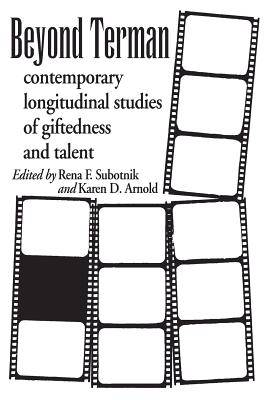
- Afhalen na 1 uur in een winkel met voorraad
- Gratis thuislevering in België vanaf € 30
- Ruim aanbod met 7 miljoen producten
- Afhalen na 1 uur in een winkel met voorraad
- Gratis thuislevering in België vanaf € 30
- Ruim aanbod met 7 miljoen producten
Zoeken
Beyond Terman
Contemporary Longitudinal Studies of Giftedness and Talent
Rena Subotnik, Karen Arnold
€ 93,45
+ 186 punten
Omschrijving
Lewis Terman heralded the field of gifted education in the United States by tracing the development of high-IQ children from their childhood in the1920s to midlife and beyond. The contemporary field of gifted education, building on the work of Terman and others, presumes that gifted children become exceptional adults. Longitudinal research offers the opportunity for critical examination of the way gifted children and adolescents are identified and illuminates the characteristics and experiences that affect sustained achievement. Only long-term studies can directly address whether or not gifted education is finding the right people and doing the right things. The studies demonstrate the fit between longitudinal methodology and the central issues of gifted education. Collectively, they investigate the early determinants of later academic and career achievement and creativity while employing varied identification practices, perspectives, theoretical orientations, and populations.
Specificaties
Betrokkenen
- Auteur(s):
- Uitgeverij:
Inhoud
- Aantal bladzijden:
- 1
- Taal:
- Engels
- Reeks:
Eigenschappen
- Productcode (EAN):
- 9781567500110
- Verschijningsdatum:
- 1/01/1994
- Uitvoering:
- Paperback
- Formaat:
- Trade paperback (VS)
- Afmetingen:
- 155 mm x 229 mm
- Gewicht:
- 603 g

Alleen bij Standaard Boekhandel
+ 186 punten op je klantenkaart van Standaard Boekhandel
Beoordelingen
We publiceren alleen reviews die voldoen aan de voorwaarden voor reviews. Bekijk onze voorwaarden voor reviews.











